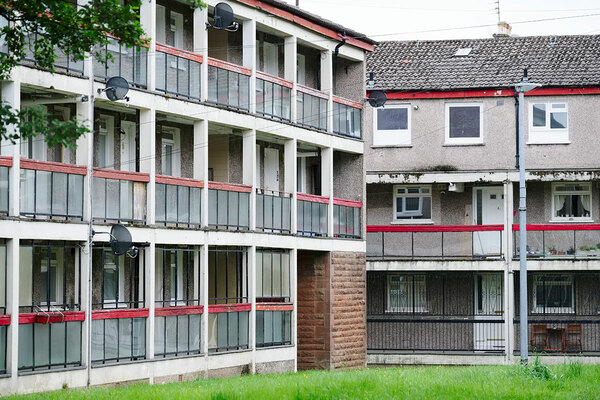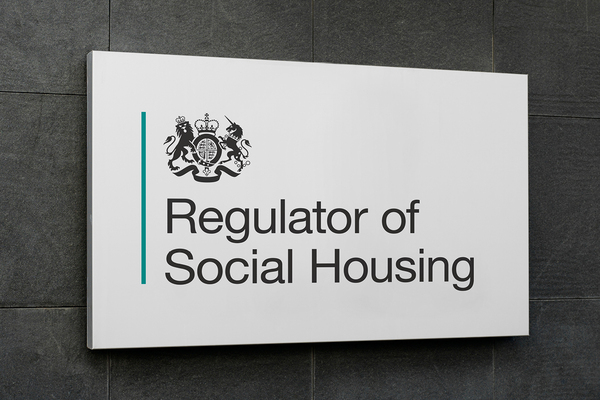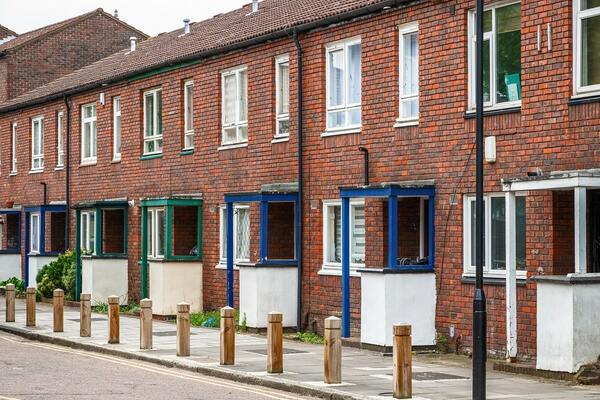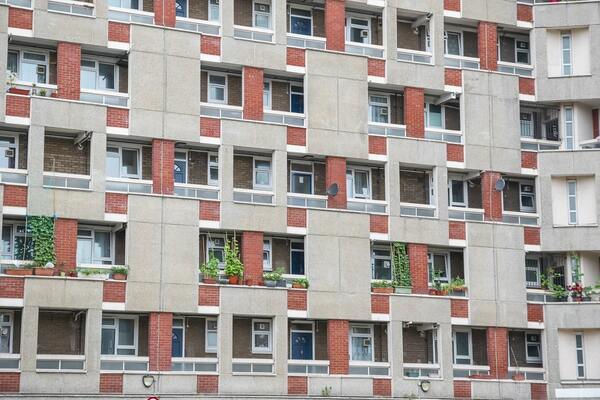You are viewing 1 of your 1 free articles
Social Housing White Paper: responses from the sector
Organisations from across the housing sector have been reacting to the long-awaited Social Housing White Paper, which was published this morning, nearly three-and-a-half years after the Grenfell Tower fire.
The white paper includes a series of proposals to strengthen the roles of the Regulator of Social Housing and the Housing Ombudsman, as well as making sure landlords are more accountable to their tenants.
Inside Housing has brought together the responses from some of the sector’s leading figures and bodies.
Kate Henderson, chief executive of the National Housing Federation (NHF): “The publication of the Social Housing White Paper is an important and welcome milestone in the country’s response to the Grenfell Tower tragedy. The sector has been unwavering in its commitment to strengthening the relationships between housing associations and their residents. The white paper offers much-needed certainty as we continue this work.
“The NHF and its members have made significant progress on tenant relations and engagement by developing our own resident charter, and we hope to see this work recognised in the white paper as a standard by which the sector can continue making improvements, especially over the time it takes for the new system to be up and running.
“Housing associations have demonstrated willingness to be more accountable and transparent, and we believe that the white paper represents a natural progression of the work we have been doing. We look forward to seeing the detail in the white paper so we can continue working with residents, the government and the Regulator of Social Housing to deliver these important reforms.”
James Prestwich, director of policy and external affairs at the Chartered Institute of Housing (CIH): “We are pleased to see the long-awaited white paper published today. Increasing transparency, accountability and tenant involvement are all positive steps, reflecting the crucial elements of an effective landlord and tenant relationship.
“We need to take the time to look in detail at the proposals. In particular, we at CIH are keen to work with the Regulator of Social Housing to ensure its enhanced powers benefit all tenants and drive ever greater professionalism across the sector. In order to achieve this, it is important to recognise that providing the best possible service to tenants requires a partnership between landlords, the regulator, tenants and the government itself.
“The impact of the pandemic has further highlighted the crucial role of social housing in our society, and the measures brought forward in the white paper should seek to build on the existing strengths of the sector and deliver genuine improvements for tenants.”
Grenfell United: “Grenfell United have long fought for one of the legacies of the Grenfell fire tragedy to be that people who live in social housing feel that there is a difference in their lives. Three-and-a-half years on, that’s not the case: residents across the country are still treated badly.
“We, along with housing charity Shelter, called for a brand new regulator. We didn’t get that. We’ve got the same social housing regulator, but for the first time this regulator will be tasked with rooting out toxic landlords through proactive inspections and tenants will have more rights to pursue complaints through the ombudsman.
“If this white paper is going to make a difference, the regulator and the ombudsman need to understand the devastating impact bad landlords can and do have on people’s lives. We have little faith that bad landlords will improve themselves – so the responsibility now lies with the regulator and ombudsman to use their new powers to ensure no residents are ever treated how we were.
“Ultimately it will be for residents themselves to determine if these changes go far enough to making their lives better and homes safer – and creating a lasting legacy for the 72 innocent lives so needlessly lost at Grenfell.”
Helen Evans, chair of G15: “The G15 are individually and collectively focused on continuously improving services through resident engagement and we welcome the government’s recognition of the importance of this.
“We support the principles behind the Charter for Social Housing Residents and in recent years have fundamentally accelerated our work in these areas but we recognise we still have more to learn.
“We are keen to engage with government on the detail of these announcements and have offered ministers an opportunity to meet with our residents to hear their feedback directly.”
Darren Rodwell, housing spokesperson at the Local Government Association: “Councils are proud of their housing and the individuals and families that call it home. It is paramount that the voice of all social housing residents is heard and councils are committed to improving standards and empowering and supporting tenants. We support measures that will make the existing redress process clearer, equitable and accessible for all tenants, regardless of the tenure they are living in.
“Councils are also determined that their tenants should have the security of a safe and well-maintained home with any issues quickly and satisfactorily addressed. Tenants of all housing tenures should expect that their landlords will consistently work towards improving living conditions.
“Now is the time to reverse the decline in council housing over the past few decades. As important as these reforms are for tenants, they will not help to tackle the severe shortage of social housing the country faces.
“Every penny spent on building new social housing is an investment that has the potential to bring significant economic and social returns. We have set out how handing councils the powers and resources to build 100,000 social homes for rent each year would help to reduce spiralling council housing waiting lists and deliver a £14.5bn boost to the economy.”
Matthew Walker, chair of PlaceShapers: “We warmly welcome the white paper on social housing. Our members put our residents at the heart of all we do. The central question the white paper seeks to address is one we are constantly asking ourselves: how we improve the experience our residents have so that their homes and communities are places they feel safe, secure and happy, and the services they receive are of the highest quality?
“Our members are anchor institutions in places. They invest for the long term and seek to work with residents and communities to improve lives and livelihoods. Nowhere has this been more evident than during this year, as we have partnered with local organisations and community leaders to support people through COVID-19.
“Many PlaceShapers members have innovative models of involving residents in how their work is delivered. But we know we can do more to create a more equal relationship with our residents and to really listen to the challenges they are facing, so we can overcome them together.
“Our members work with residents to ensure their voices are heard and views listened. We welcome measures which support this in the form of a greater role for the regulator in proactive consumer regulation. It is vital it is adequately funded to meet this remit and it is developed with residents and the sector.
“We are always disappointed if a resident feels the need to complain – and are keen to learn from complaints, so we welcome a strengthened Housing Ombudsman to speed up this process.
“We look forward to reading the detail, but the proposed new charter sets out standards which we believe will ensure every social housing tenant in the country has a decent, safe, affordable home and their voice is heard and listened to by their landlord. In due course, we believe this charter should also be extended to all those who rent their homes in the private sector.”
Housing ombudsman Richard Blakeway: “We have a central and positive role to play in the government’s plans to evolve the sector.
“The White Paper recognises the key role we perform and the work we are doing to create a cultural shift in the sector.
“There are a number of new areas featured in the paper which combined seek to strengthen and embed our existing role as well as potentially expand our scope.”
David Montague, chief executive at L&Q: “Safety, customer service and accountability are some of the defining topics in the social housing world, and we welcome the government’s continued interest in this important agenda.
“We’ll be examining the recommendations of the white paper in detail, but we recognise the importance of the issues raised here for our communities. We believe that by meaningfully involving residents in the decisions which impact their lives, housing associations can draw upon local knowledge rooted in lived experience, and gain a crucial perspective on the different and emerging needs of the neighbourhoods they manage.
“This isn’t just the right thing to do; it’s key to delivering better services, and helps to keep our core social purpose of providing successful homes and communities at the centre of our decision making. We haven’t always got things right, but we’ve been listening to our residents and have already begun our journey to find ways to involve and support them more effectively.
“L&Q is a signatory to the NHF’s Together With Tenants charter, which commits us to ensuring a deep level of resident involvement in our activities. In 2018 we established a representative 3,500 strong online customer panel, which is actively involved in providing feedback on our services, and L&Q resident Fayann Simpson joined our board.
"Last year, we carried out an overarching governance review which led to the creation of a new Resident Service Board. This is a talented and diverse body which, as well as advising our wider Group Board, will play a key role in facilitating our approach to resident involvement and placing community voices at the heart of our business.
“We recognise there is still work to do, and we are absolutely committed to improving, guided by our residents. Our top priorities over the next five years are safety and service. These will be embedded in our forthcoming five-year strategy which will see us make significant investments in our existing homes and the services which we provide, while still providing new homes across a variety of tenures for every stage of our resident’s lives.
“And underpinning all of this will be our continued commitment to working with our residents and the government to strengthen accountability, improve transparency, and make our services and neighbourhoods the best they can be.”
Tom Beattie, vice-chair of the District Councils’ Network: “We are pleased the government has announced measures to ensure that social housing tenants are able to work well with social landlords to feel proud of their home and their community, and that issues are resolved when they emerge.
“Unfortunately this white paper is a real missed opportunity to address the massive demand for social housing, as more and more people find themselves in expensive and often unsuitable private rented housing.
“The government needs to set out a plan for building many more high-quality, energy-efficient, attractive social housing at rent levels that people can afford.
“Central to this is breaking down the barriers which prevent councils from building new council homes. It is vital the government supports this effort with further investment and through devolving Right to Buy so councils can set discounts locally.”
Tonia Secker, partner and head of affordable housing at Trowers & Hamlins: “In the light of the challenges for social housing highlighted by Grenfell and COVID-19, nothing in the substance of the Social Housing White Paper should come as a surprise.
“Residents need to be protected, heard and respected. Social housing landlords need to be accountable, but they also need to be supported to do their job in challenging circumstances.
“The introduction of beefed-up powers for the Social Housing Regulator – inspections, metrics, balancing consumer regulation with economic regulation – has addressed some of the previous gaps in the system that impeded its operations and will provide greater clarity.
“If this more rigorous system is to work, a new compact between residents, social housing landlords and the regulator is required with all three contributing to its design.
“The need for primary legislation will – given competing political agendas – mean implementation will take time.
“The temptation to view that negatively should be resisted – this is a significant change in the approach to social housing and time will be vital in creating a sustainable system which is fit for purpose and in which all stakeholders have confidence.”
Update: at 13.11pm 17/11/20
A comment from the Housing Ombudsman was added to the story.












